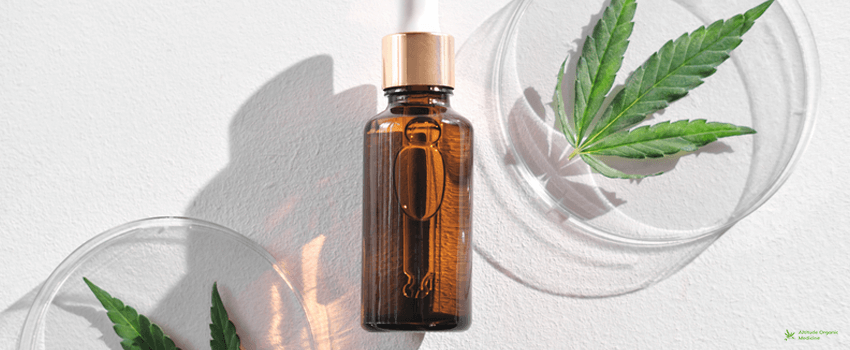Allergies are caused by an overactive immune system that perceives potentially harmless chemicals as threats to the body. Symptoms include itching, drooping eyes, sneezing, runny nose, rashes, and more.
People might be sensitive to plant pollen or certain foods, and because CBD oil is a plant-based product, some wonder if it can trigger an allergic reaction.
As CBD products become more popular and relevant, an increasing number of people have negatively responded to CBD due to defective products and bad reactions. Therefore, we’ll explain all there is to know about CBD and allergies today. We’ll cover everything you need to know about a possible allergic reaction to CBD oil products.
An Overview of Allergies
Allergies are becoming increasingly prevalent in today’s environment. What precisely causes allergic reactions?
According to researchers, allergies are caused by the immune system. Typically, the immune system can distinguish between non-hazardous and dangerous chemicals, protecting us from the latter.
However, the system occasionally detects harmless substances as a possible threat and produces antibodies to combat these intruders. When the body comes into touch with an allergen, antibodies are produced.
Foods rich in protein, such as soy, wheat, and nuts, are common allergens. Because of hemp seed oil’s high protein content, it may contribute to hemp allergies. It is not the most widely utilized carrier oil for CBD extracts, however.
Returning to CBD oil allergic reaction, here’s all you need to know.
Does CBD Oil Cause Allergic Reaction?
Although it is uncommon, the answer to the question is yes. CBD may cause allergies in certain circumstances.
Because full-spectrum CBD oil is derived from entire hemp plants, there is a danger of pollencontamination in the CBD formulation. When this occurs, a person may come into touch with allergens and have an allergic reaction.
Only male hemp plants can produce pollen. While industrial hemp growers cultivate male and female hemp plants, CBD oils are extracted from female plants. This is because female plants produce cannabinoid-rich blooms.
Cross-pollination would be required to get some of the pollen into the CBD extract. Still, nothing is known regarding the effects of hemp pollen on CBD. However, applying high-quality extraction methods may reduce its content to nothing.
Terpenes in CBD oil have also been linked to allergic responses in studies. Certain terpenes, such as limonene and linalool, have been linked to skin rashes in those who are allergic to them. Terpene allergies, on the other hand, are uncommon.
Because full-spectrum CBD oils include a variety of terpenes, some users may develop an allergic response.
Allergy to Hemp Seeds
As previously stated, high-protein meals can trigger allergies. Hemp seeds are a popular foundation for various CBD products, including creams, lotions, serums, and cooking oils. It should be 100% fat when used in this manner. However, hemp seeds are high in protein, and when treated differently (unrefined), they might cause hives and redness in certain people. Customers with severe reactions to hemp seed oil should search for CBD oils dispersed in other carriers, such as MCT oil or olive oil.
What Are the CBD Oil Allergic Reaction Symptoms?
According to the American Academy of Allergy, Asthma, and Immunology, individuals with CBD allergies may have symptoms after breathing, touching, smoking, or ingesting CBD-containing goods.
To defend the body against the substance it perceives as a threat, the body’s immune system produces antibodies known as immunoglobulin E, which causes an allergic response.
Individual responses differ based on the person’s immune system and the amount of immunoglobulin E in circulation. An allergic reaction does not necessarily happen during the initial encounter with the allergen; it can also evolve.
Because CBD oil is derived from hemp plants, most allergic responses to it are similar to fungus and pollen allergies. If you stop using it, these CBD oil allergic reaction symptoms should go away. Some of the most common allergic responses to CBD oils are:
- Nosebleed
- Sneezing
- Congestion
- Dry Cough
- Itching
- Eye Irritation
- Skin Reaction
- Throat Discomfort
Topically applied CBD oil may potentially cause skin responses. CBD causes the following skin reactions:
- Blisters
- Parched Skin
- Hives
- Redness
- Irritation
Let’s go through some of the symptoms of CBD oil allergies mentioned above in more detail.
Can CBD oil make you itchy?
It is dependent on the pitching. If a person is sensitive to CBD oil or other components, such as terpenes, red, irritated eyes may occur. The fewer components there are in your CBD oil, the better. Only hemp extract and MCT oil should be used in the base.
CBD can induce irritation when applied to the skin, but it may not cause itching. Sift through the ingredient list to ensure that the product does not include any skin irritants or possible allergies.
The UK Medicines and Healthcare Products Regulatory Agency (MHRA) documented only two incidences of itching after consuming CBD oil, according to the findings of a 2019 study.
One patient who took an oral formulation had urticaria, a severe skin disorder characterized by swelling, red welts, and extreme itching. Another person experienced itchy skin and took CBD both orally and topically.
Can CBD oil cause a rash?
Although full-spectrum CBD users seldom report adverse reactions, certain types of CBD may produce a skin rash in some people. This complication is maybe more prevalent with the FDA-approved medicine Epidiolex.
Because the medicine has been carefully studied for both possible advantages and adverse effects, rashes are one of the most prevalent side effects in the prescribing material. It also concerns liver issues and itchiness.
After using Epidiolex or CBD oil, anyone with these adverse effects should immediately seek medical attention. It’s also advisable to consult your doctor before incorporating it into your medication regimen.
Can CBD oil cause adverse reactions?
CBD is widely regarded as a safe chemical.
According to a recent study of cannabidiol safety and adverse effects, CBD is well tolerated by people. The analysis looked at doses ranging from 300 mg to 1500 mg daily for several weeks and found no severe or life-threatening adverse effects.
However, excessive amounts of CBD oil might induce a few modest side effects, such as:
- Mouth Dryness
- Dizziness
- Appetite Fluctuation
- Diarrhea
Key Takeaway
Millions of individuals worldwide suffer from food and seasonal allergies. While a CBD oil allergic reaction is exceedingly rare, a few clinical cases of itching, rashes, sneezing, coughing, and other classic pollen allergy symptoms have been reported.
You may also experience a response while using CBD topically, especially if your products contain additional chemicals like terpenes, plant-based extracts, or other substances to which you are sensitive.
Until researchers provide sufficient clinical proof about CBD oil allergies, it is up to the user to decide if being allergic and using CBD oil may coexist.
Visit Altitude Organic Cannabis
CBD can potentially interact with a variety of medicinal substances. In addition to seeking expert counsel from doctors, obtaining these CBD-infused products from a reputable source is essential.
Let’s start your CBD journey the right way! Altitude Organic Cannabis is the best place to get CBD products from. Our dispensary in Dillon, CO, has a reputation for honesty and transparency with the CBD-infused products we offer. Get in touch with us right away if you have any questions.


